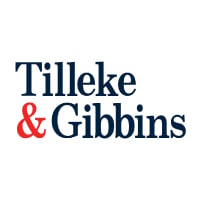
General counsel and assistant general manager | Isuzu Motors Asia Thailand





Amonwalai Ninpanich
General counsel and assistant general manager | Isuzu Motors Asia Thailand
What are the most significant cases, projects and/or transactions that you and/or your legal team have recently been involved in?
As Thailand serves as the manufacturing and export hub for the company’s Light Commercial Vehicles (LCVs), my team and I have had the opportunity to handle and manage distributorship and dealership agreements covering Europe, the Middle East, Asia, Africa, Oceania, and South America, as well as related commercial contracts. This work includes ensuring compliance with applicable laws and regulations across diverse legal landscapes, such as adherence to EU competition law. In addition to commercial agreements, I have also been involved in implementing and ensuring compliance with data privacy regulations in Thailand, particularly in response to the enactment of the Personal Data Protection Act (PDPA) over the past two to three years. This includes supporting both the parent company and its affiliates operating in Thailand.
How do you approach managing legal aspects during periods of instability or crisis to ensure the organisation’s resilience?
During the COVID-19 pandemic and the global semiconductor shortage, our legal team played a key role in supporting the business by managing and adapting our vehicle distributorship agreements to respond to the rapidly evolving crisis. This involved reviewing and, where necessary, renegotiating key contractual terms—such as delivery obligations, force majeure clauses, and termination rights—to ensure that our contractual commitments reflected the new operational realities. We also worked closely with business units and distributors to find commercially viable and legally sound solutions that helped maintain long-term relationships while protecting the company’s interests. Our approach was focused on flexibility, risk mitigation, and ensuring business continuity across all affected markets.
Based on your experiences in the past year, are there any trends in the legal or business world that you are keeping an eye on that you think other in-house lawyers should be mindful of?
One key trend I’ve been closely monitoring is the rapid digital transformation across industries, which is reshaping both business operations and the legal function. In-house lawyers must adapt by leveraging legal tech tools—such as contract automation, and compliance platforms—to improve efficiency and manage risk. At the same time, we must stay vigilant on emerging legal issues related to data privacy, cybersecurity, and AI regulation. As technology continues to evolve, our role expands beyond legal risk management to becoming strategic partners in ensuring responsible and compliant digital innovation.
What do you think are the most important attributes for a modern in-house counsel to possess?
I believe one of the most important attributes for a modern in-house counsel is the ability to learn quickly and adapt continuously. In today’s fast-changing world, it’s essential to stay updated on evolving commercial dynamics and developments in technology—especially as digital tools and platforms rapidly transform the way we work. Without this mindset, we risk falling behind and failing to effectively address customer demands in the business world.